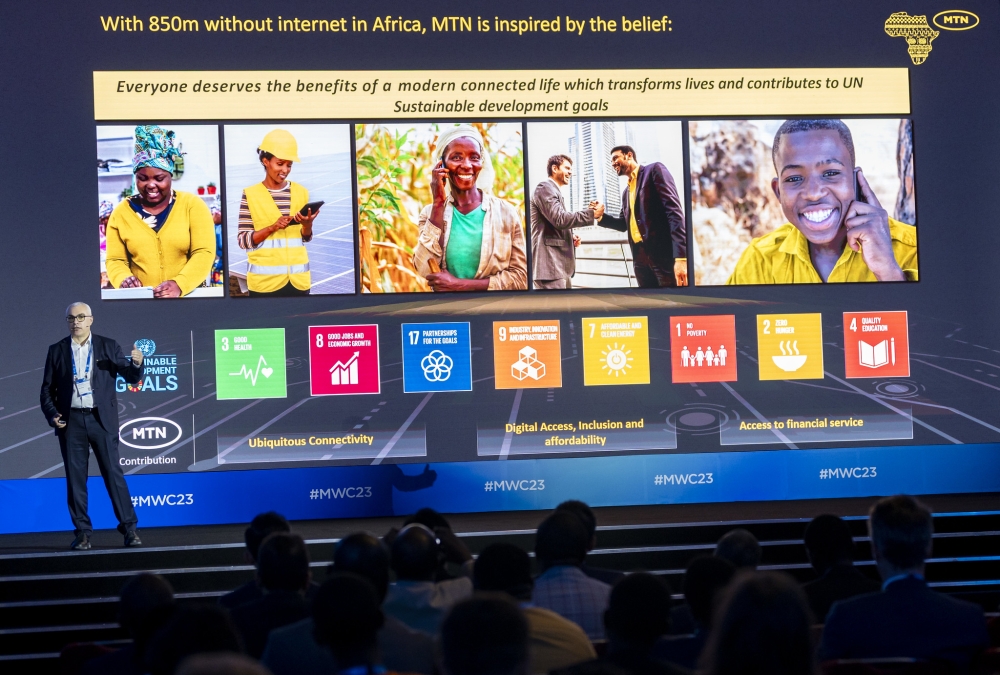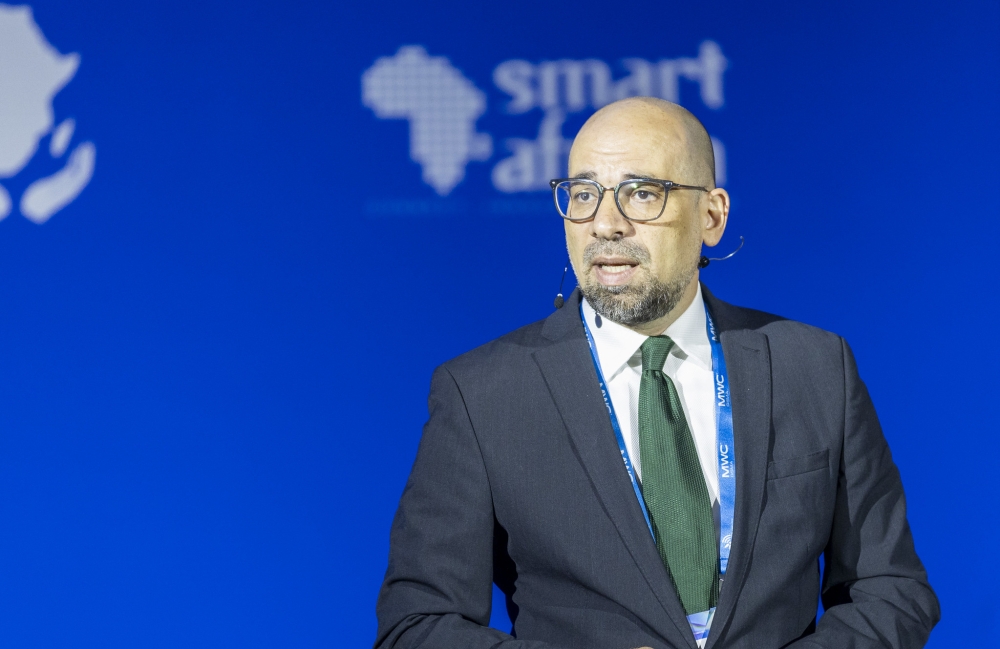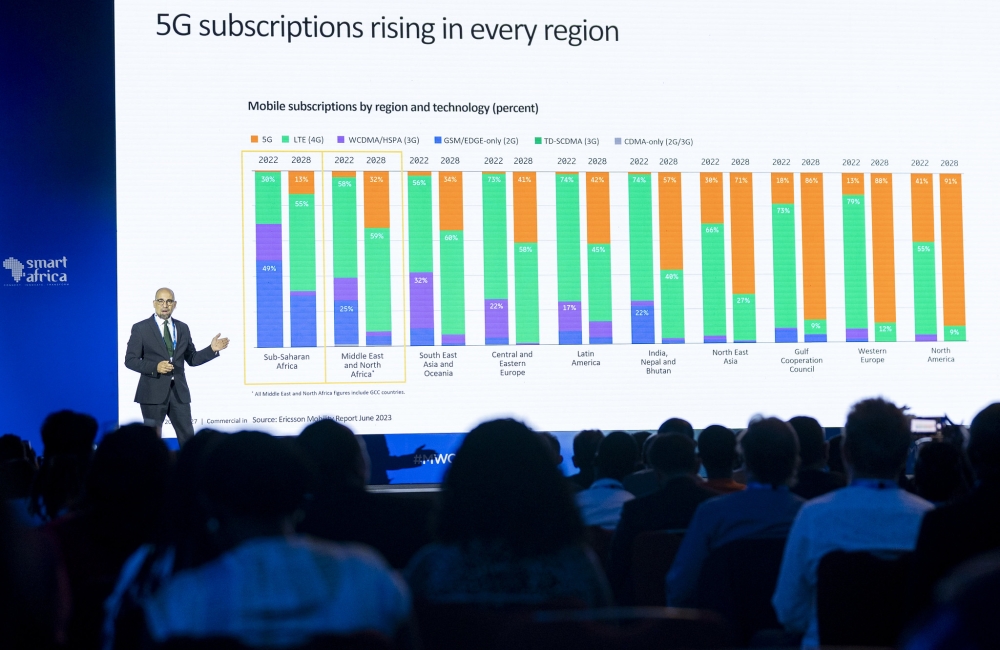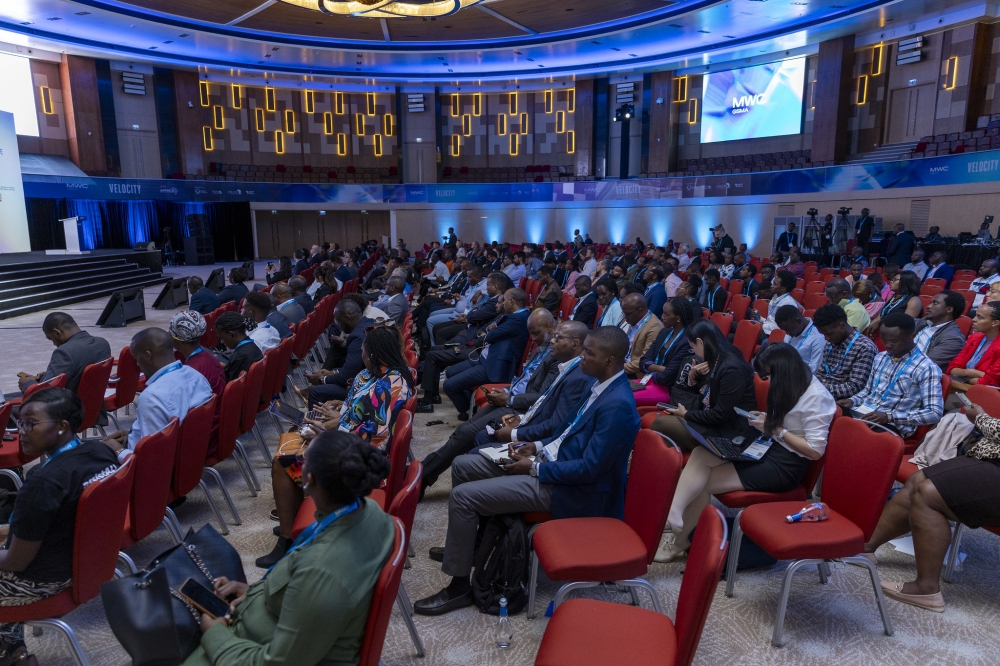Experts at the Mobile World Congress (MWC Kigali) on Tuesday, October 17, discussed the potential of 5G technology in Africa, emphasizing its role in driving socioeconomic growth, fostering connectivity, and catalyzing digital transformation across various sectors
ALSO READ: We must address mobile access with a sense of urgency – Kagame

Jason Zhang, Marketing Vice President at Huawei, highlighted the growth of 5G technology.
Zhang noted: “5G has significantly outperformed 4G in market development, becoming the fastest-growing mobile technology in history.
It reached over 213 networks globally and gained over 1 billion subscribers in just three years. The rapid development of affordable 5G devices with over 300 smartphone models priced below $300 is a testament to its success.”
Zhang also pointed out that 5G’s presence is increasing in Africa. Most countries in the southern African region have already launched 5G services commercially, and others are in trial or planning phases.
He stressed that widespread 5G availability is crucial for Africa’s prosperous future, emphasizing the need for affordability and accessibility across society.
5G: A driving force for social impact

Mazen Mroué, Chief Technology and Information Officer at MTN Group, discussed the immense potential of 5G deployments in Africa, estimating a $226 billion opportunity by 2030, creating around 60 million employment opportunities.
He emphasized MTN’s focus on democratizing the home experience, aiming to connect homes with a fixed infrastructure. This initiative, aimed at improving home connectivity, is a top social responsibility for MTN.
Hossam Kandeel, VP, Head of Global Customer Unit at Ericsson Middle East and Africa, addressed the energy challenges associated with 5G. Kandeel mentioned the growing energy expenditures due to 5G’s higher speeds and lower latencies.
Ericsson is committed to “breaking the energy curve” through various measures, including automation and artificial intelligence, to reduce energy consumption and manage infrastructure efficiently.
The future of 5G in Africa
Shen Yang, Senior Solution Architect at ZTE Corporation, emphasized the far-reaching economic potential of 5G for Africa, projecting a total benefit of 26 billion US dollars between 2021 and 2030. He expounded on three key considerations for the successful implementation of 5G technology in the African context.
Firstly, Yang highlighted the importance of cost management, suggesting a simplified approach to total cost of ownership and endorsing the viability of spend-and-share solutions.
Secondly, he stressed the need for enhancing efficiency, focusing on improving the user experience to boost customer satisfaction. Additionally, he emphasized the growing significance of energy efficiency for operators and suggested solutions to reduce energy consumption at various levels, including base stations, site infrastructure, and the network as a whole.
According to the experts, the rollout of 5G in southern African countries and ongoing 4G efforts suggest an optimistic outlook. By 2030, it’s anticipated that 5G market share will increase by 20 percent in Africa. Globally, 5G is set to reach 1.5 billion connections, constituting approximately 17 percent of all mobile connections worldwide.
This technology is considered a pivotal next step for Africa as it strives to bridge the digital divide and accelerate development.





